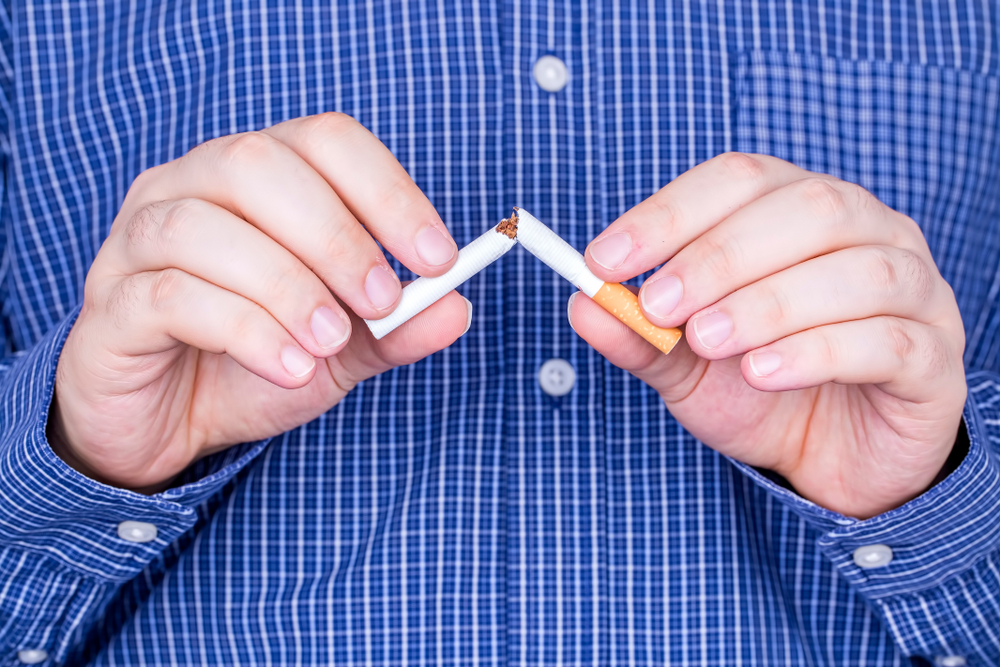We all know smoking is bad for our lungs, but have you ever thought about what it does to your teeth? It turns out that smoking’s effect on teeth can wreak havoc on your oral health.
Let’s break down the nitty-gritty of how smoking affects your teeth. From stains to severe problems like gum disease and oral cancer, smoking’s effect on teeth is damaging.
Table of Contents
Smoking Effect on Teeth – What Can Happen?
Here’s what you need to know about smoking and oral health.
Yellowing and Stains
Think about how a white shirt can get stained over time. Smoking does something similar to your teeth.
The chemicals in cigarettes can leave stubborn yellow or brown stains on your teeth that brushing just can’t remove.
So, your smile might lose its brightness, making you self-conscious.
Weakening Enamel
Imagine the enamel on your teeth like a protective shield. Smoking weakens this shield. It’s like rust forming on a metal surface.
The chemicals in tobacco can erode the enamel, making your teeth more vulnerable to cavities and sensitivity.
Gum Troubles
Smoking messes with your gums, too.
The blood flow to your gums gets reduced, which means they can’t fight off infections well. It can lead to swollen, bleeding gums and even gum disease.
Your teeth might start to loosen up and, in severe cases, fall out.
Danger of Oral Cancer
Here’s a scary smoking’s effect on teeth. It increases your chances of getting oral cancer.
The harmful stuff in tobacco can cause sores in your mouth that don’t go away. These could be early signs of cancer.
So, smoking isn’t just a problem for your teeth; it’s a danger to your life.
Dentist Recommendation: Dr. Aamer Iqbal is one of the leading dentists based in Lahore. With an experience of 27 years in the field, he is well-trained to deal with any teeth problem you might have.
What Happens If You Lose Your Teeth Due to Smoking?
Losing teeth due to smoking is a result of various interconnected factors. Smoking can have detrimental effects on your oral health.
It can contribute to tooth loss through several mechanisms:
Gum Disease (Periodontal Disease)
Smoking is a major risk factor for gum disease, also known as periodontal disease. It impairs blood flow to the gums and reduces the body’s ability to fight infections.
Moreover, it can lead to inflammation, infection, and destruction of the supporting tissues around the teeth, ultimately causing them to become loose and fall out.
Reduced Blood Flow
Smoking constricts blood vessels, which limits blood flow to the gums and other oral tissues.
It impairs the ability of the gums to receive necessary nutrients and oxygen, hindering their ability to heal and maintain good health.
Delayed Healing
Smokers generally experience slower healing processes in their bodies, including in the mouth.
It can prolong the recovery time after dental procedures, making it difficult to save or restore damaged teeth.
Weakened Immune System
Smoking weakens the immune system’s ability to fight infections.
This weak immune response can make it harder for the body to combat oral infections and gum disease.
Suggested Read: How to Deal with Sensitive Teeth and Avoid Sensation?
Bone Loss
Smoking can lead to bone loss in the jaw, which supports the teeth.
This bone loss can weaken the foundation of the teeth, making them more susceptible to becoming loose and falling out.
Dry Mouth
Smoking can contribute to dry mouth, as it reduces saliva production.
Saliva plays a crucial role in neutralizing acids in the mouth and maintaining a healthy environment for teeth. Dry mouth increases the risk of tooth decay and gum disease.
Tooth Decay
Smoking itself may not directly cause cavities. However, the overall impact on oral health, such as gum disease and dry mouth, can indirectly contribute to tooth decay.
Suggested Read: Best Teeth Pain Tablet in Pakistan!
Struggling to Quit Smoking?
Quitting smoking isn’t easy. We get that. But it’s super important.
If you’re struggling, reach out for help. There are people and resources available to support you. Don’t feel like you’re alone in this fight.
If quitting feels impossible right now, focus on protecting your teeth as much as you can.
Brush and floss regularly, and visit your dentist often. They can clean your teeth professionally and keep an eye on any issues that might be cropping up.
Save Your Teeth by Kicking the Habit!
It’s a tough journey, but quitting smoking is the best thing you can do for your teeth and overall health. As you put down those cigarettes, you’ll notice positive changes. Your teeth will start looking better, and your breath will smell fresher.
Your dentist can be your ally in this journey. They can help you deal with stains, sensitivity, and any dental problems that might have cropped up due to smoking.
Regular check-ups can keep you on track.
Imagine a life where you’re not controlled by smoking. Your teeth can regain their strength, and your smile can regain its glow.
It’s not just about teeth; it’s about your whole well-being.
Reach Out to a Dentist for Help!
Remember, the connection between smoking and your teeth is real. But so is your power to make a change. Every small step away from smoking is a step towards healthier teeth, a brighter smile, and a happier you.
If you need help, reach out to a qualified Dentist via Healthwire.
